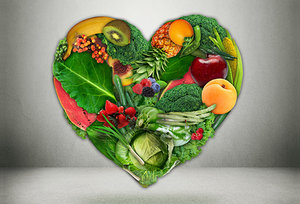To Your Health
December, 2017 (Vol. 11, Issue 12) |
|
|
DASH Your Way to Lower Blood Pressure
By Editorial Staff
Bad news, part 1: High blood pressure (hypertension) is a precursor to life-threatening conditions such as a heart attack, stroke, kidney disease and aneurysms.
Bad news, part 2: According to the Centers for Disease Control and Prevention (CDC), one in three U.S. adults suffers from high blood pressure – that's 75 million Americans whose lives are at risk the longer their hypertension goes unaddressed.
Now here's the good news: Dietary adjustments, particularly adopting a diet that reduces sodium (salt) consumption, can help get your blood pressure back into the safe / healthy range - and it doesn't take that long to see results. Researchers divided study participants (all of whom had been diagnosed with hypertension, but were not taking medication for it) into an intervention group and a control group for comparison.
The intervention group received the DASH (Dietary Approaches to Stop Hypertension) diet, while the control group consumed an average American diet. Every four weeks, participants in both groups had their diets adjusted to either a high-, medium- or low-sodium diet. (The high-sodium diet represented normal sodium consumption, while the medium-sodium diet represented recommended sodium consumption, and the low-sodium diet less-than-recommended consumption.)
 According to the Mayo Clinic, the DASH diet "emphasizes vegetables, fruits and low-fat dairy foods — and moderate amounts of whole grains, fish, poultry and nuts." The standard DASH diet allows for up to 2,300 milligrams of sodium a day. The study, published in the Journal of the American College of Cardiology, reached two interesting conclusions: 1) The higher the subject's hypertension at the start of the study, the greater the blood pressure reduction during the study period. 2) Participants on the DASH diet / low-sodium combination achieved the greatest BP reductions compared to study participants on the normal diet / high-sodium combination.
According to the Mayo Clinic, the DASH diet "emphasizes vegetables, fruits and low-fat dairy foods — and moderate amounts of whole grains, fish, poultry and nuts." The standard DASH diet allows for up to 2,300 milligrams of sodium a day. The study, published in the Journal of the American College of Cardiology, reached two interesting conclusions: 1) The higher the subject's hypertension at the start of the study, the greater the blood pressure reduction during the study period. 2) Participants on the DASH diet / low-sodium combination achieved the greatest BP reductions compared to study participants on the normal diet / high-sodium combination.
Your doctor can assess your blood pressure levels and advise you on dietary changes you can make to bring your BP back into the healthy range if it's a problem. As this study shows, in most cases lowering your blood pressure isn't about taking medication; you can do it the natural way!

